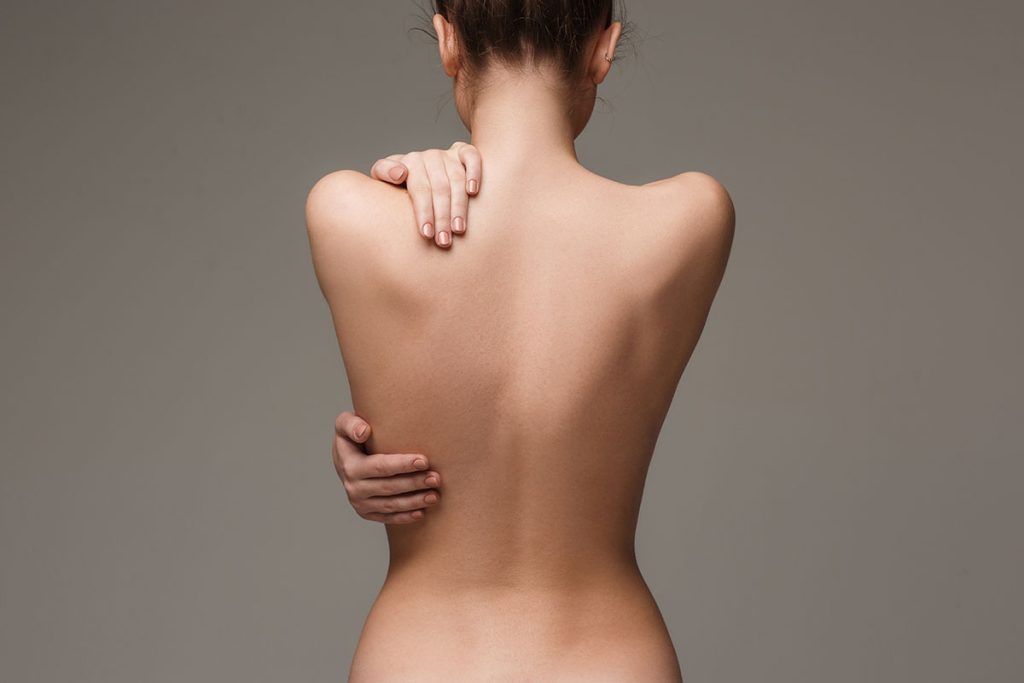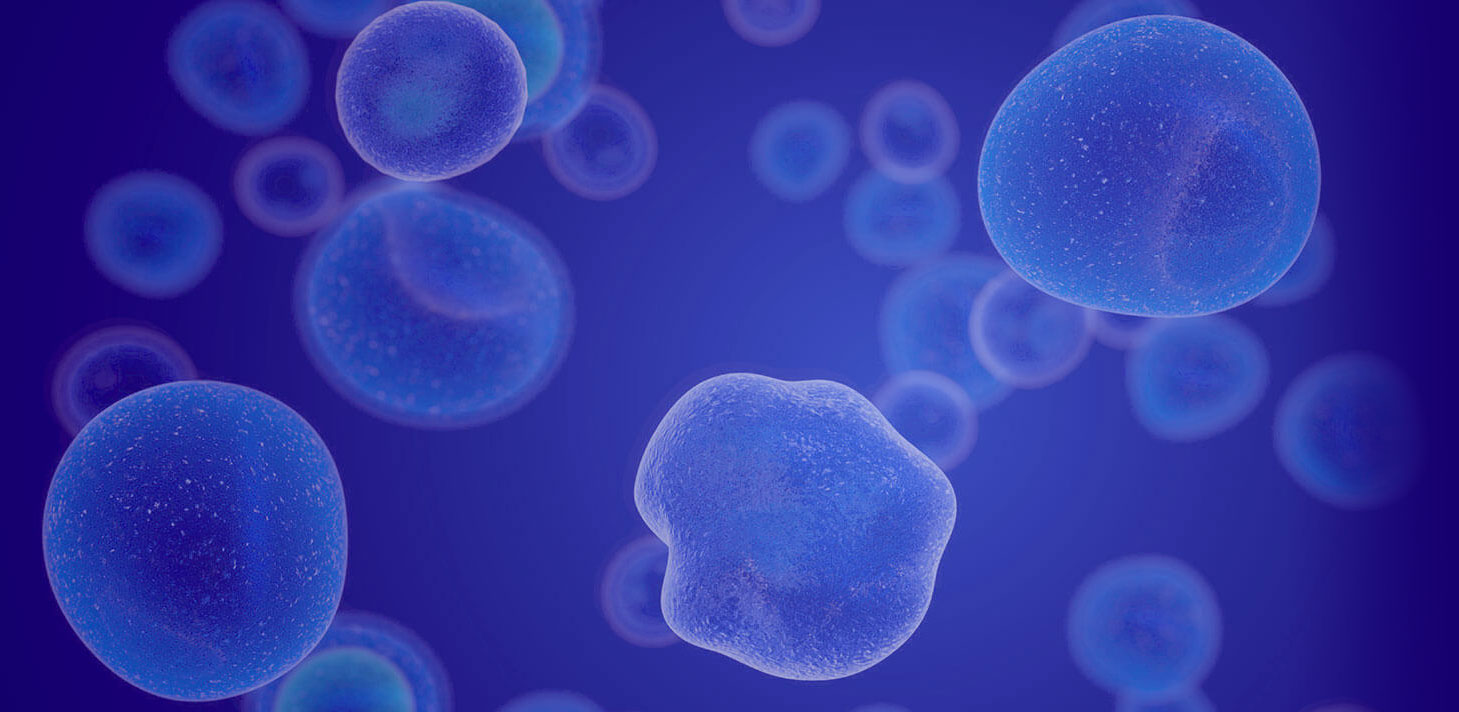Stem Cells for Shoulder Pain
Conveniently located to serve the areas of Greenville, SC, Spartanburg, SC, Columbia, SC, Anderson, SC and Asheville, NC

Stem cell therapy is a type of regenerative medicine; an area of study that researches strategies to help the body heal its own tissues without surgery. Stem cells are responsible for replacing damaged cells throughout the body. When stem cells are harvested, they can be used to effectively treat a wide range of injured tissues. (1)
While the shoulder joint is a remarkable structure that allows for a wide range of motion and flexibility, it is also prone to injury and degeneration. At Daisy Stem Cell Therapy and Advanced Regenerative Medicine Centers of the Carolinas, Dr. John C. Haasis III specializes in providing advanced stem cell therapy for shoulder pain.
With his expertise and dedication to patient care, Dr. Haasis offers a comprehensive approach that combines advanced regenerative medicine techniques with a holistic understanding of each patient’s needs. These treatments have afforded patients the ability to heal on their own without the need for surgery.
To see what Dr. Haasis can do about your shoulder pain, call us at (864) 775-5682, request a consultation through our contact form, or find us at these locations in North and South Carolina:
Contents
About Stem Cells
Stem cells divide and produce “daughter cells” that become specialized cells that make up many other kinds of tissue. To be more specific, mesenchymal stem cells are the most helpful in regenerating connective tissues like fat, bone, and cartilage. This type of cell is also capable of supporting angiogenesis, the creation of new blood vessels to promote healing. Angiogenesis also works to support the creation of other stem cells that are more specific to the area of injury. (2) With the help of these processes, this type of regenerative medicine can aid in healing the following.
Rotator Cuff Injuries and Tendonitis
The rotator cuff is a group of shoulder muscles that works to rotate your arm and lift it above your head. When one of these muscles gets torn, it first needs to be diagnosed via an MRI scan. The microtears cause inflammation which is known as tendonitis. Stem cells can aid in healing minor tears or treat chronic issues of rotator cuff degeneration. By strengthening the surrounding tendons with regenerative medicine, you can help prevent tears in the future.
Bursitis
The bursae contain synovial fluid, a substance that plays a key role in ensuring smooth movement between bones and cushioning between muscles and tendons. Bursitis is the term used to describe when these sac-like structures get inflamed and cause pain. An ultrasound or MRI scan is needed to properly diagnose the condition. Directly injecting stem cells into the bursae encourages cells to fix the damage that has caused the inflammation.
Osteoporosis
Osteoporosis is a chronic condition that causes the bones to lose density and strength. It can be diagnosed with a specialized x-ray machine that measures bone density. It is a fairly common occurrence as people age and/or consume a diet without an adequate amount of vitamin D and calcium. Mesenchymal cells divide into osteoblasts to help slow down bone loss and promote more growth. They can also produce chondrocytes, cells that produce cartilage- fostering cushioned, pain-free movement within joints.
Rheumatoid Arthritis
RA is an autoimmune condition in which your own immune system attacks the joints and causes inflammation. While it affects several joints at once, the shoulders are a commonly affected area alongside the wrists, ankles, and elbows. There is no official cure for the condition, but stem cell therapy can be used in conjunction with other therapies to effectively slow down its progression.
Benefits of Stem Cells for Shoulder Pain
If you are seeking relief from shoulder pain, consider exploring the potential benefits of stem cell therapy. Discover the possibilities of regenerative medicine and take the first step towards reclaiming a pain-free and active lifestyle:
- It is entirely non-surgical.
- It utilizes minimally invasive injections.
- It only requires local anesthesia.
- Treatment can minimize the need for surgery later on. (3)
- It requires much less downtime than surgery; you will only need to rest your shoulder for a few days.
- In the shoulders, it can relieve symptoms from tendon, ligament, cartilage, or muscle damage and work to repair.
Dr. Haasis’ stem cell therapy is considered allogeneic, meaning that it is derived from other human donors.
Personal Consultation
Shoulder pain can be debilitating, affecting not only our daily activities but also our overall quality of life. If you’re suffering from shoulder pain due to an orthopedic condition or musculoskeletal injury, there is hope for relief without the need for invasive surgery.
At Daisy Stem Cell Therapy, we offer stem cell therapy and regenerative medicine treatments that harness the incredible healing potential of your body’s own cells. Call us at (864) 775-5682, schedule your consultation online, or visit us in the following locations:
Preparation
As part of the preparation for your stem cell treatments, Dr. Haasis will review your medications and supplements and advise you to stop taking anything that may interfere with your results. Certain types of anti-inflammatories and blood thinners may negatively impact how the treatments work in your body. He will then closely evaluate the function of your shoulder and determine the cause of your pain. Using this information, he will create a personalized treatment plan based on your individual needs.
Procedure Steps for Stem Cell Therapy
Dr. Haasis utilizes harvested stem cells from tissue that has undergone rigorous evaluation, proper storage, and purification. The cells are extracted using a centrifuge, a device that is able to isolate the mesenchymal stem cells. (4)
For the injections themselves, Dr. Haasis will precisely plan out where the stem cells should be administered. After injecting a local anesthetic to properly numb the area, he will strategically inject several areas within the shoulder.
Recovery and Results
After your shoulder injections, you may notice some discomfort in the area for 2 to 7 days. Most patients describe the discomfort as a mild soreness. Dr. Haasis will give you more information about which over-the-counter medications are suitable for your needs. Certain non-steroidal medications like ibuprofen or aspirin could affect the effectiveness of your injections. Over the next few weeks, you will notice a reduction in your pain level in and around the shoulder.
Cost of Stem Cell Therapy in South Carolina
When determining the cost of stem cell injections, various aspects are taken into consideration, such as the specific regenerative medicine techniques employed and the extent of the shoulder pain treatment required. Dr. Haasis aims to provide the most effective and comprehensive regenerative solutions to alleviate your shoulder pain and enhance your quality of life. He will provide you with an estimate at the time of your consultation.
Find help for shoulder pain at Daisy Stem Cell Therapy. Call (864) 775-5682 or complete a short form to book your consultation with Dr. Haasis.
FAQ
Am I a good candidate for stem cell therapy?
While stem cell therapy has shown promising results for many individuals, it is essential to undergo a comprehensive evaluation by a qualified physician to determine if you are an ideal candidate. Factors such as the severity of your shoulder condition, overall health, and medical history will be taken into consideration to ensure the most appropriate treatment plan is tailored to your specific needs.
Can stem cell therapy be combined with other treatments for shoulder pain?
Absolutely! Depending on your specific condition, your doctor may recommend combining stem cell therapy with other treatments such as physical therapy or PRP therapy to optimize your results.
Does stem cell therapy utilize stem cells from a donor or your own body?
Sometimes, doctors will harvest stem cells from a sample of your own bone marrow. This is called autologous stem cell treatment. Stem cells from a donor can also be transferred; this is an allogeneic therapy. Both techniques have been studied and found to be effective for use in regenerative medicine.
Do stem cell injections hurt?
Your doctor will administer a local anesthetic before treating the affected area with stem cell injections. In addition, stem cell therapy does not cause long-term damage to soft tissue, unlike corticosteroid shots. Due to the potential for more harm than good, corticosteroid shots are prescribed sparingly- many doctors limit patients to no more than 3 shots per year.
References
- Mao AS, Mooney DJ. Regenerative medicine: Current therapies and future directions. Proceedings of the National Academy of Sciences. 2015;112(47):14452-14459. doi:https://doi.org/10.1073/pnas.1508520112
- Vasanthan J, Gurusamy N, Rajasingh S, et al. Role of Human Mesenchymal Stem Cells in Regenerative Therapy. Cells. 2020;10(1):54. doi:https://doi.org/10.3390/cells10010054
- Eun SC. Stem Cell and Research in Plastic Surgery. Journal of Korean Medical Science. 2014;29(Suppl 3):S167. doi:https://doi.org/10.3346/jkms.2014.29.s3.s167
- Pelekanos RA, Sardesai VS, Futrega K, Lott WB, Kuhn M, Doran MR. Isolation and Expansion of Mesenchymal Stem/Stromal Cells Derived from Human Placenta Tissue. Journal of Visualized Experiments. 2016;(112). doi:https://doi.org/10.3791/54204


